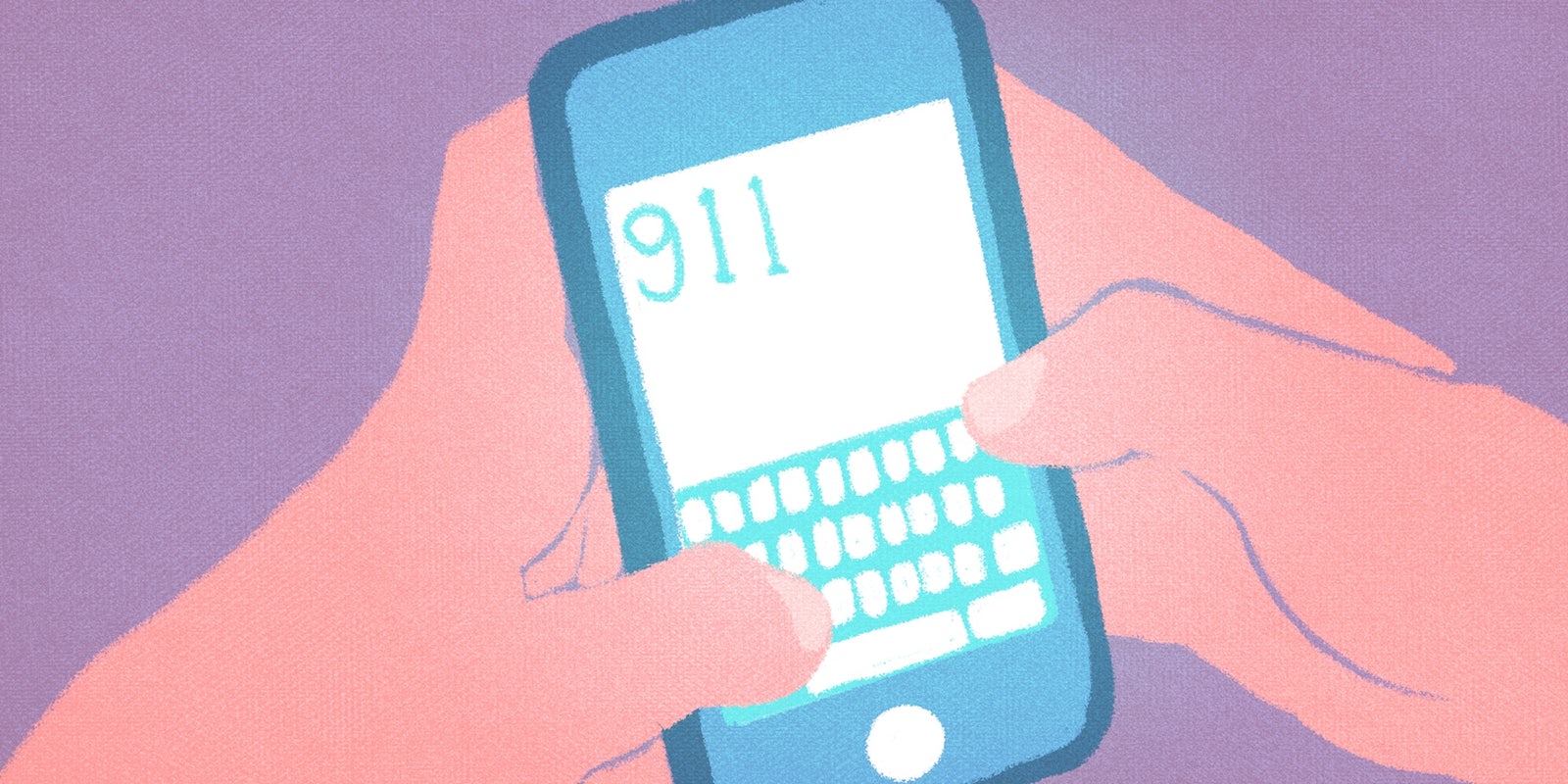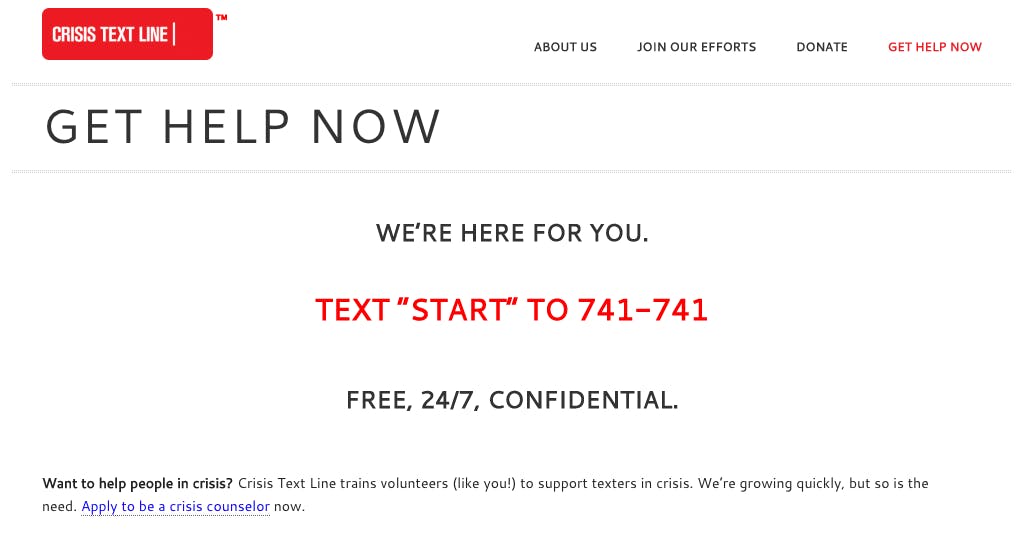When you’re in emotional crisis, you can now get help from a supportive stranger as easily as you might coordinate meeting friends in a crowded bar. After 62 years of crisis hotlines, a new service is something of an Uber—for when you need someone to talk to.
The Crisis Text Line is a nonprofit organization dedicated to helping those who need to talk about any serious problem at any time of day or night via text message. Anyone who feels that they are in crisis can text 741741 whenever they like to be instantly connected to a trained counselor. Of course similar services exist to connect people with someone to talk to on the phone in a time of need, but Crisis Text Line’s counselors communicate with users from behind a computer, providing aid without even speaking. There are currently 400 active counselors with another 400 in training today.
This is a free service funded by a large foundation and a few individuals, but those specifics are not disclosed. Both the organization’s website and a representative for the Crisis Text Line emphasized that user anonymity is of utmost importance. The organization’s goal is simply to make immediate counseling services as available as possible, and this means doing so via text. Americans clearly prefer text messaging to voice communications, as they spend an average of 26 minutes a day texting compared to just six minutes of daily voice calls.
The Daily Dot spoke to Baylee Greenberg, director of operations for the Crisis Text Line to learn more. She’s trained in linguistics and psychology, and offers this explanation of the service’s major advantage over similar voice-based competitors: “Text by nature is extremely factual. It’s linguistically powerful because it facilitates clear communication. By the third text message, we generally know the exact issue at hand.” Forgoing the voice makes communication that much more legible—as people reach out in high-stress or emotionally charged situations, there are no background sounds or sobs to decode.
The counselors are extensively prepared for their task over a 34-hour-long course. “Training is lengthy, and not everyone passes,” said Greenberg. “It consists of online modules where people can go at their own pace, videos, quizzes, and example conversations. Eventually they meet with a group of 30 other people for live sessions in group video chats. It’s like college office hours—they’re asking questions, hearing other people’s questions, and practicing skills they’ve learned.” The last step is a final evaluation by way of one-on-one video chat with a trainer, who makes sure counselors have all the skills needed and are comfortable and confident with the assignment.
All counselors are volunteers, and they each work one four-hour shift per week. During this time, the counselors are communicating with users in need through the line’s proprietary platform, but they’re also communicating with other counselors at the same time. Greenberg said that the counselors often serve as each other’s support, and it makes their community a very special one. She confirmed that this is the only service of its kind in existence—a 24-hour text-only support service that isn’t issue-specific.
Illustration by Max Fleishman

